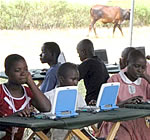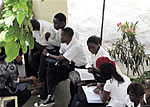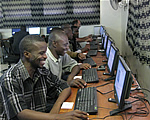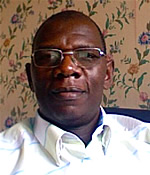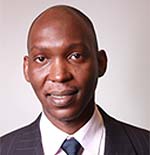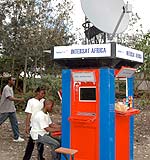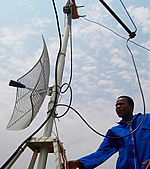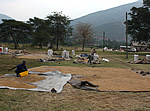Three solar panels, a battery, ten folding chairs, five tables, fifteen Intel-powered Classmate PCs and two teachers in a small van: This is the basic “equipment” of the Mobile Solar Computer Classroom (MSCC). It has been en route through rural Uganda for two years now with the purpose of teaching pupils and teachers IT and computer skills. The initiator is Eric Morrow, founder of […]
Recent news
ICTs are empowering street children in Kenya
A pioneering project aimed at training ICT skills is transforming the lives of children who live in the streets of Eldoret, an agriculturally rich town in Kenya’s lush Rift Valley region. Led by SNV, a Dutch development agency, in collaboration with the “Ex-Street Children Community Organisation” (ECCO), a group of formerly homeless young people, the initiative provides street children with basic computer skills, thereby […]
Building a robust IT programme at Nkumba University
In Entebbe, on the Northern shores of Lake Victoria, sits one of Uganda’s few private higher-education institutions: Nkumba University. Until a short time ago, the University staff faced tremendous administrative obstacles with respect to their ICT equipment. Budget restrictions and growing maintenance and electricity costs highlighted the need for an innovative solution to address the challenges that this progressive university had to […]
Zambian teachers test free digital learning tools
A group of about thirty teachers from the Copperbelt region in Zambia convened in a workshop last month to receive an introduction to several free eLearning computer programmes. These tools, which included an offline version of Wikipedia, a quiz maker and other helpful programmes, have the potential to enrich the learning experience of teachers and students, even in areas with no internet connection.
“Africa is developing fast – we are helping it to move even faster”
Litsa Panayotopoulos, Managing Director of the OTEAcademy S.A, is a “global player.” Based in Greece, she received her academic training in London and has worked in the U.S. as well as in Europe, the Middle East and Africa for many years. Currently she is playing a major role in the fast growing sector of corporate training and distance learning in several parts of the […]
Dry ICT skills are not enough
Zimbabwe’s educational system, once a shining example for the entire African continent, is now struggling with severe problems: At the beginning of 2009, the country experienced a fierce battle between teachers and the government. Teachers were not able to make a living, the majority of schools closed and school fees shot up. Although there are signs of a slight improvement, many difficulties remain – […]
Embracing all facets of ICT deployment in Africa
In his role as Africa Regional Director for the Global e-Schools and Communities Initiative (GeSCI), Alex Twinomugisha helps to empower African countries to develop strategies for the proper use of ICT in education to promote their overall development. In the following interview, Nairobi-based Twinomugisha talks about the challenges his organisation has to overcome when deploying ICT in Africa and what effect technology continues to […]
Rural Internet kiosks herald last frontier in bridging digital divide
Rural Internet Kiosks are currently mushrooming throughout rural areas in Kenya, Nigeria, Rwanda and Zambia, providing Africans who were previously cut-off from the digital world with Internet connections. These movable, cost-effective and recyclable kiosks, which operate with satellite connectivity provided by Intersat Africa and use solar energy, along with a highly energy efficient personal computer, allow rural communities to participate in the digital world. […]
Connecting the unconnected
In January 2010, in order to connect rural areas lacking any IT infrastructure to the Internet, the Fraunhofer FOKUS, a branch of Germany’s largest research organisation, the Fraunhofer-Gesellschaft, will breathe life into the FOKUS NET4DC. Together with partners from target regions, this international centre for information and communication technologies in developing countries will develop and make available tailor-made IT infrastructures and communication networks. The […]
Rural information systems boost Ugandan farming
The International Institute for Communication and Development (IICD) and the Ugandan government have signed an agreement to expand the Rural Information System programme, which helps farmers to increase their income through ICT-enabled crop-marketing services. So far, twenty-six existing Agricultural Cooperative Enterprises (ACEs) in isolated areas throughout Uganda have become part of the Rural Information System programme over the last eight years. These centres enable […]

